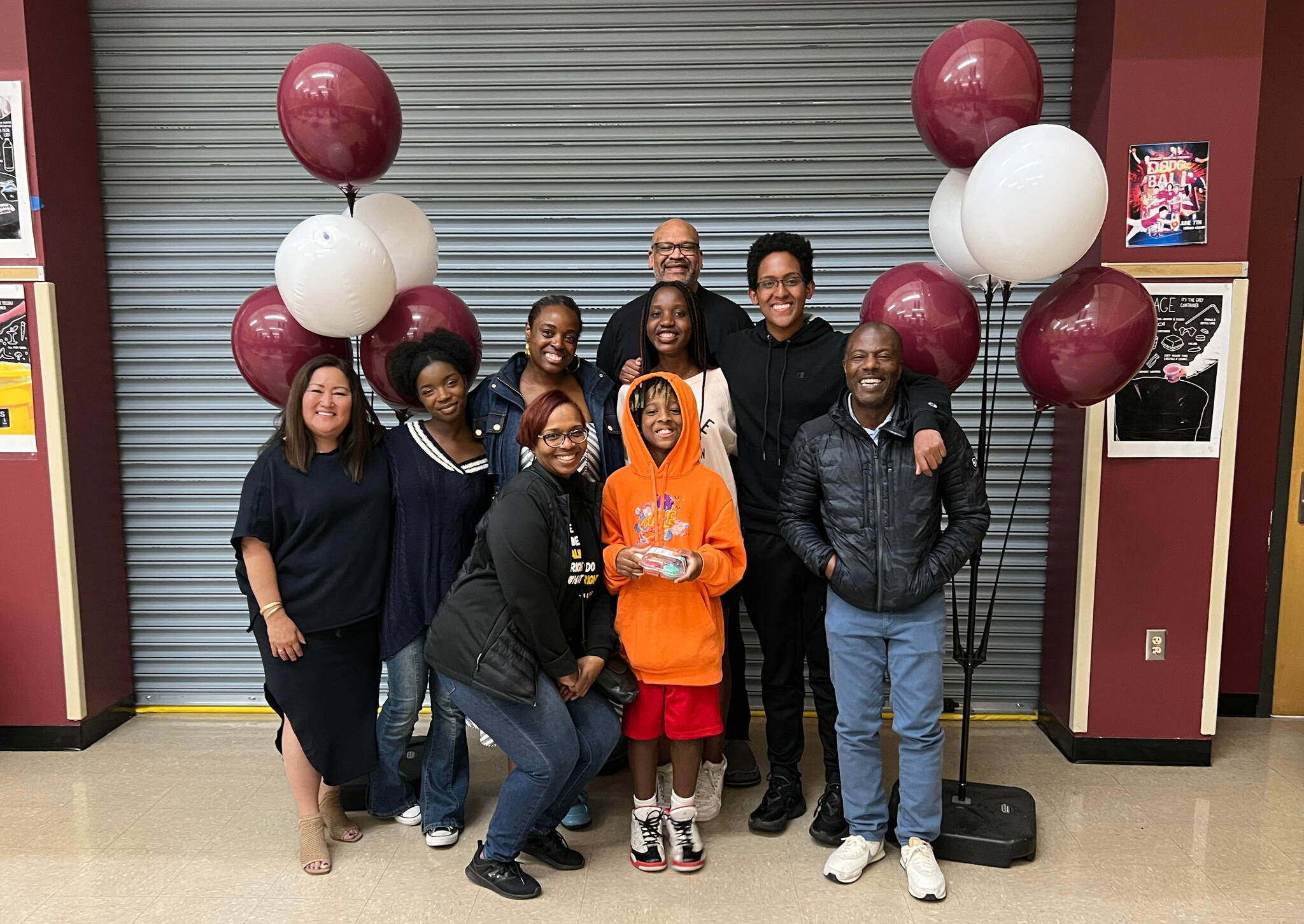By Soyun Chow
Special to the Reporter
On May 22, four Mercer Island High School Black Student Union (BSU) members and two West Mercer Elementary School parents participated in a panel discussion about their experience living on Mercer Island.
The discussion was part of a Mercer Island High School (MIHS) Parent and Community Event, where they replayed bestselling author Ijeoma Oluo’s Black History Month speech at MIHS and screened BSU’s documentary “Finding Community.” Approximately 100 Mercer Island School District (MISD) families and community members attended the event in person at the high school or through Zoom.
The event began with MISD Superintendent Fred Rundle sharing that the district is committed to “creating a deep sense of belonging for every single student and celebrating who they are as individuals.” He added that he was proud of the event for broadcasting the voices from the BSU and leveraging their mission to educate and promote change.
The panel discussion, facilitated by Kimberly Miyazawa Frank, addressed microaggressions, stereotypes, the cumulative effect of racism, and what the community should know about being Black on Mercer Island. Currently, 1.1% of MISD students identify as Black or African American.
Participating in the panel discussion about their experiences were MIHS BSU high school students Teddy Sanchez-Alemu, Omolara Olusanya, Joy Rurangwa and Miles Tardif; and West Mercer Elementary School parents Mellissa Hill and Tari Jones. Hill and Jones are also former MISD students.
Jones, a 45-year resident of Mercer Island, said he joined the panel to make a difference for his third-grade child. “It is very impressive to see this many people. It definitely means that Mercer Island is making an effort here.”
On the subject of stereotypes, freshman Tardif said that he has to try hard to not fit stereotypes of being late or acting angry. “I spend a lot of time trying to be more passive because I don’t want to seem rude or aggressive and it’s difficult when it’s about something really important. You have to pick your words carefully not to seem upset.”
Parent of a fourth-grader, Hill, said that community members should “not make assumptions about who we are, where we came from, and whether or not we are residents here. Greet us as Islanders.”
Jones said to “just treat Black people like you do other people.” He told the audience, “I want to commend you for taking the courage to educate yourselves and to learn a little bit more. What we need to do as a group is to keep showing up.”
Freshman Rurangwa said that tough conversations like these should continue. “There’s hope if we keep putting in the effort.”
The students agreed that being a part of BSU and connecting with BSU advisers Kelly John-Lewis and Valerie Perine was an important part of their lives.
Freshman Olusanya said that being a part of BSU meetings is a time for her to feel a sense of belonging every week.
There is hope for the future. Junior Sanchez-Alemu said, “I think there is hope because of the change and progression that we are constantly seeing. The one thing that does give me hope is that our generation is going to be leading the charge. Each generation tends to be more progressive and more inclusive and tends to change the system that is built against a minority. The fact that students at this high school and across America are going to be leading the charge gives me hope.”
Hill agreed with the students that there is hope and told them: “Keep your head up high and keep appearing and doing great work. Your mere existence when you walk into the school and you show up is having an effect.”


